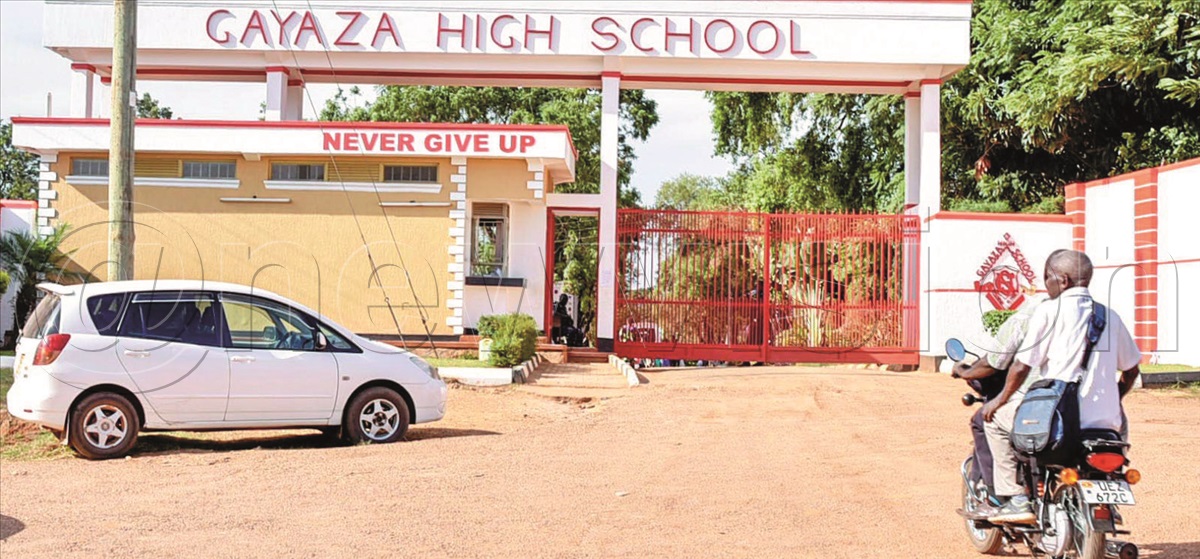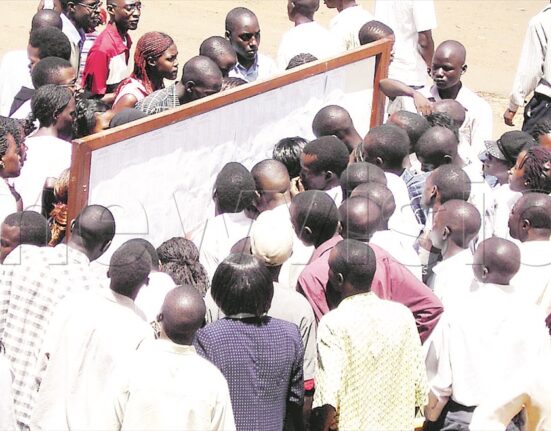By Martin Kitubi
Although government-aided primary and secondary schools, as well as vocational institutions offer different content, these will have the same charge ceiling.
According to the draft Statutory Instrument on fees, the institutions will be allowed to levy charges for only school requirements and boarding fees.
On the other hand, private schools were allowed to charge school fees, allowable charges for school requirements, as well as boarding fees. However, the draft instrument proposes that all government-aided schools can only levy sh430,000 in allowable charges for day schools.
This implies that a pupil or student enrolled at a day government-aided primary, secondary or vocational institution will not pay more than sh430,000.
Boarding Government-Aided
Boarding government-aided schools will be allowed to charge sh430,000 in allowable fees and sh650,000 as boarding fees, only.
This implies that a pupil or student enrolled at a government-aided boarding primary, secondary or vocational institution will not pay more than sh1.08m a term.
“For government-aided schools that receive tuition, a pupil or student shall not be required to pay fees. Boarding fees are considered to be an arrangement between the school and the parents,” the draft reads, adding that, “government shall not pay for boarding fees for students in government-aided schools”.
The allowable charges for school requirements shall cover uniform, including sportswear, scholastic materials, meals and refreshments. The charges will also cover personal body effects (boarding school) and a Bible or Quran, where applicable.
However, the draft says a government-aided primary or secondary school shall not deny education services to learners on grounds that the pupil or student’s parent failed to pay for allowable fees.
Statutory Instruments
Statutory instruments are a form of legislation which allow the provisions of an Act of Parliament to be subsequently brought into force or altered without Parliament having to pass a new Act.
Statutory instruments are referred to as secondary, delegated or subordinate egislation. Section 99 (5) of the executive authority of Uganda allows the President or any person authorised by the President to issue a statutory instrument.
The draft Statutory Instrument on Fees is currently undergoing the necessary consultations with stakeholders.
On December 20, 2022, the draft was presented before proprietors of private schools, founding bodies, such as the church and Muslim community, among others.
According to sources in government, the draft is expected to be presented before the education ministry top management before being sent to Cabinet for a final nod.
Govt-Aided Schools Defined
There are two categories of government schools. These include government-founded schools, also known as government-owned schools, as well as government-aided schools. Unlike the government -founded schools, government-aided schools have founding bodies, such as the Church, but they receive grants from government.
In addition, government also pays staff salaries, support infrastructural development and providing textbooks to government-aided schools.
Some of the schools under this category include St. Savio Junior School, Gayaza Junior School, St. Mary’s College Kisubi, Mengo Senior School and Gayaza High School.
Others are Busoga College Mwiri, St Joseph’s College Ombaci Jinja College, Maryhill High School, King’s College Budo and Sacred Heart Secondary School in Gulu.
Majority of the government schools were established by founding bodies, many of them with a religious base.
Some of the government-founded schools include the Seed Secondary Schools that the government has constructed over time. At secondary education level alone, there is a total of 1,568 government-aided and government-owned academic institutions.
Of these, 1,367 are secondary schools, whereas 201 are tertiary training institutions.
Much as the Uganda government is among the listed categories of founding bodies, it owns just 117 secondary schools and 70 tertiary institutions, spread across the country.
Meanwhile, a section of heads of government-aided institutions are against the proposal, saying they offer different services and cannot have the same ceiling. However, they all asked to be protected in fear of witch-hunt by their bosses.
A principal of a vocational institution in northern Uganda said: “The unit cost of educating a student under vocational education is more than double than that of secondary education. The requirements are different, and, therefore, we cannot have the same ceiling.”
A headteacher of a government-aided school in Jinja city said: “With this plan, we will be over-regulating the sector and it will cause confusion, let the government send all the funds, including the salaries, to institutions directly and they allow us to manage these institutions.”
A headteacher of a government-aided primary school said: “This instrument proposing that fees can only be approved by the education ministry fees committee will encourage corruption. Do these committees have the capacity to review all the school applications?” The headteacher added,” If the approvals are decentralised, they will have given local governments a kill to solicit bribes.”
However, Silver Mukwasibwe, the principal of Uganda Technical College Kichwamba in Kabalore, said:
“We are a government institute, we cannot defy what the government is proposing,” he said.
Ministry Explanation
The education ministry has, however, asked the public to remain calm on the subject and that the ministry will communicate to the general public and stakeholders at the right time.
In an interview with the New Vision on Tuesday, Ketty Lamaro, the ministry permanent secretary, told our reporter that the ministry is still consulting stakeholders on the subject matter.
In a telephone interview, Lamaro said: “The education ministry is still consulting on the matter and it will communicate to the public at the right time.”
“Consultations are intended to come up with a decision that will be fair to all stakeholders,” she added.
REGULATIONS
Although the Education Act 2008 gives the school management committee for primary schools and the board of governors for post-primary institutions powers to review and set fees, they are required to engage parents and also apply to authorities to approval fees increment. With the decentralisation of primary school management, the school management committee is required to seek approvals for fees increment from chief administrative officers, or the board of governors must write to the education ministry permanent secretary.
The ministry says over the years, the provisions were never followed by schools and that they continue to charge fees exorbitantly. The same Act also gives the education minister powers to reign in. However, to be able to deliver, the ministry needed to draw clear guidelines on the processes and how much can be levied.
The arbitrary fees increment by schools, as well as the continuous public outcry, prompted the education ministry to develop the statutory instrument on fees to reign in rouge managers. The draft statutory instrument on fees proposes a school fees cap and demands audited books of account for all schools before they can apply for fees increment. The draft also proposes penalties for offenders.









Leave feedback about this